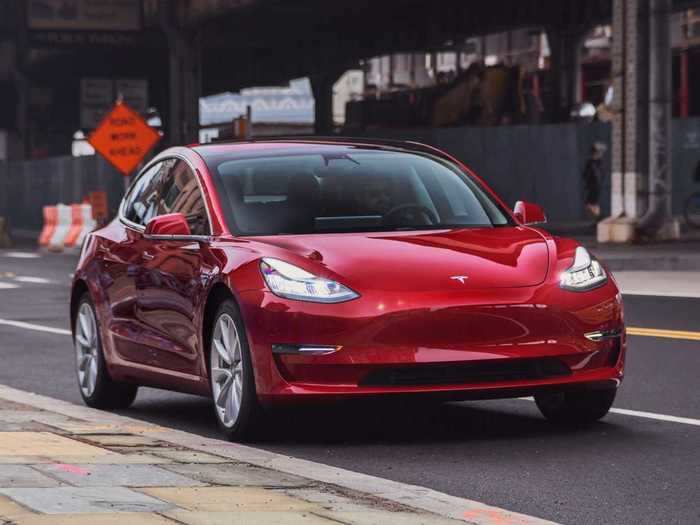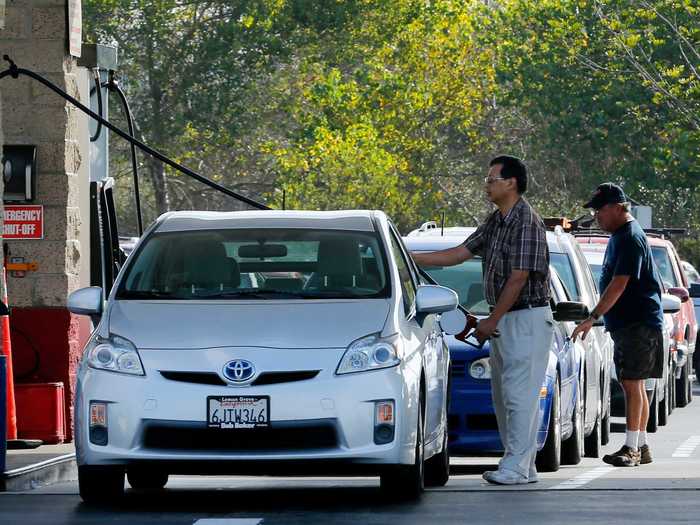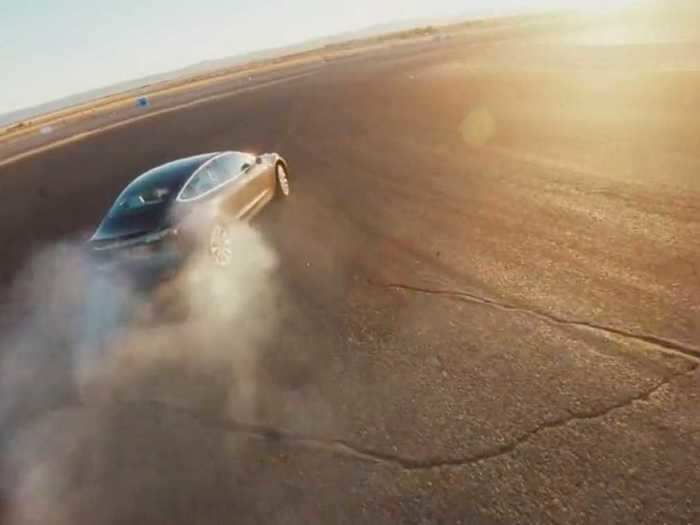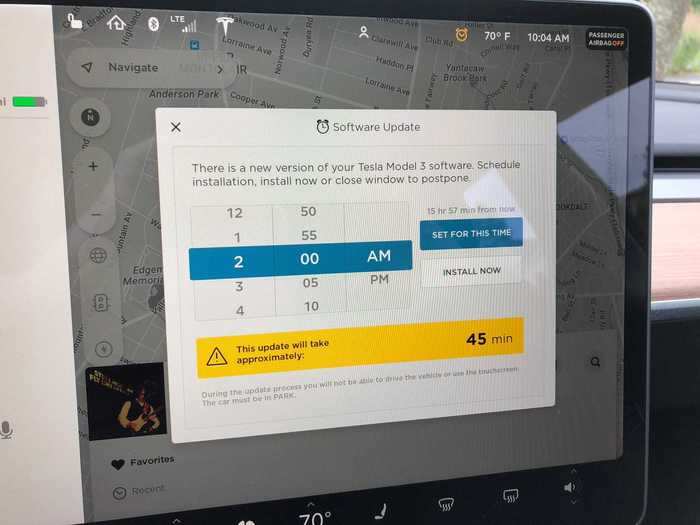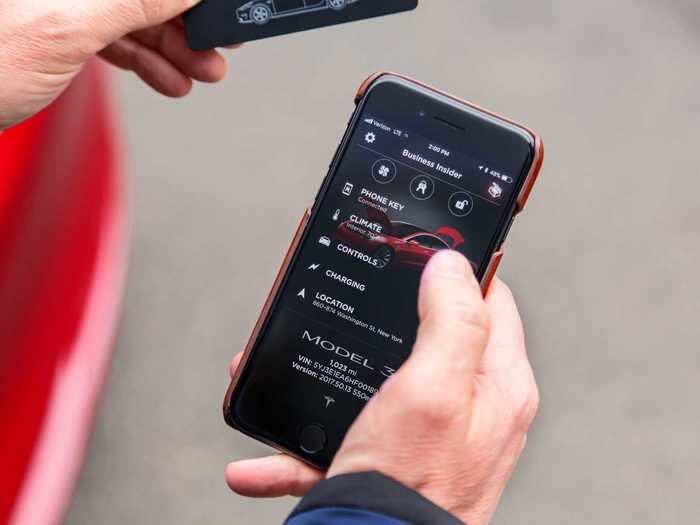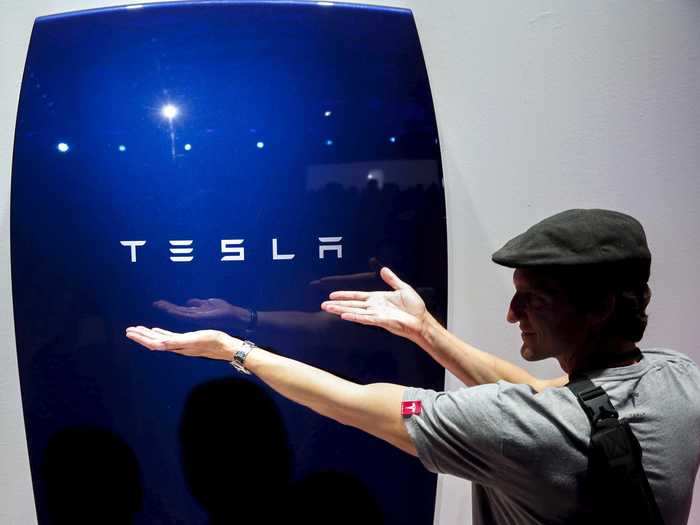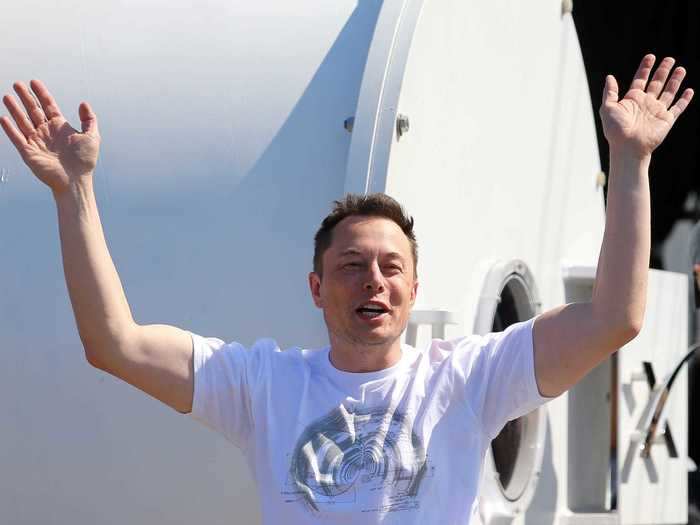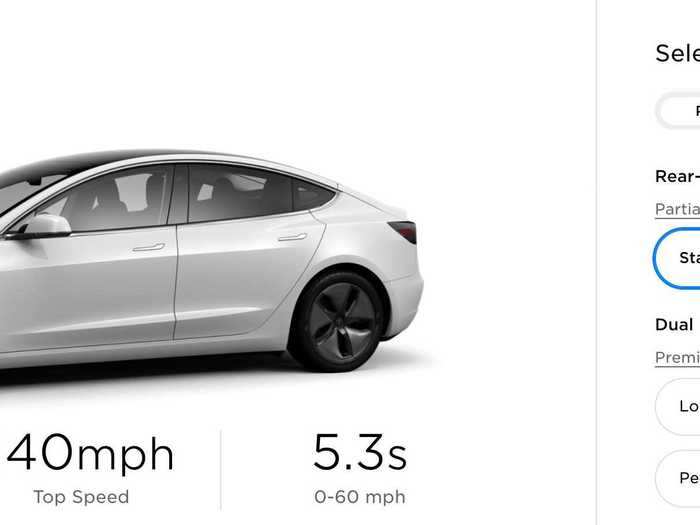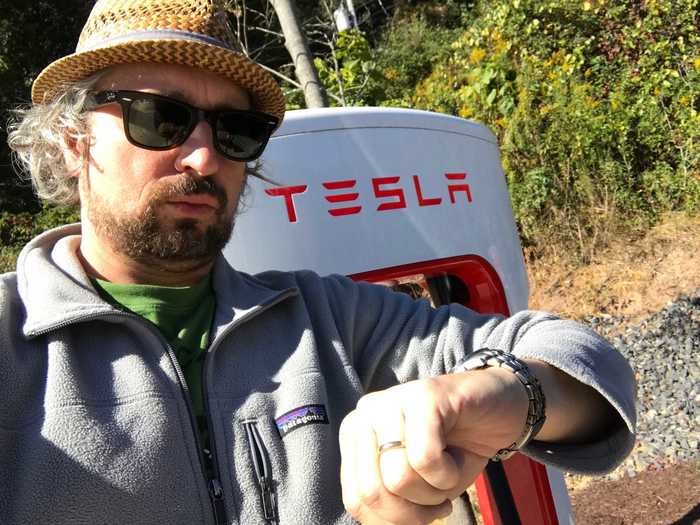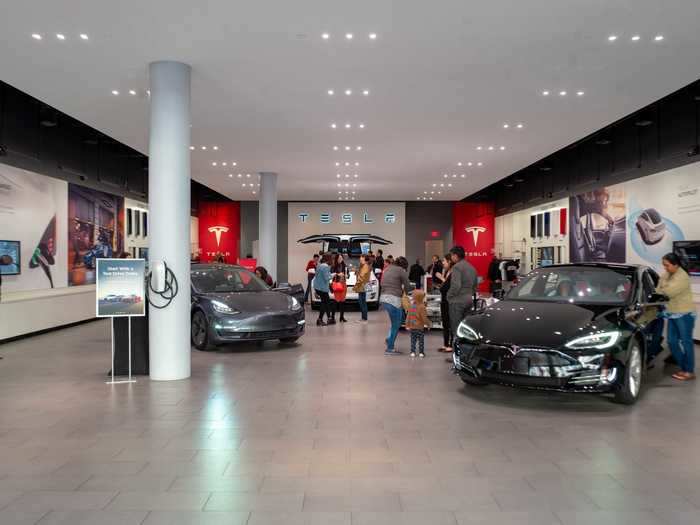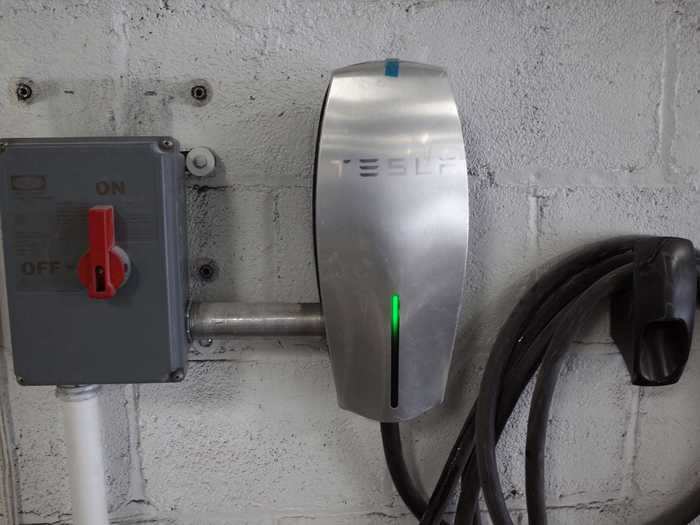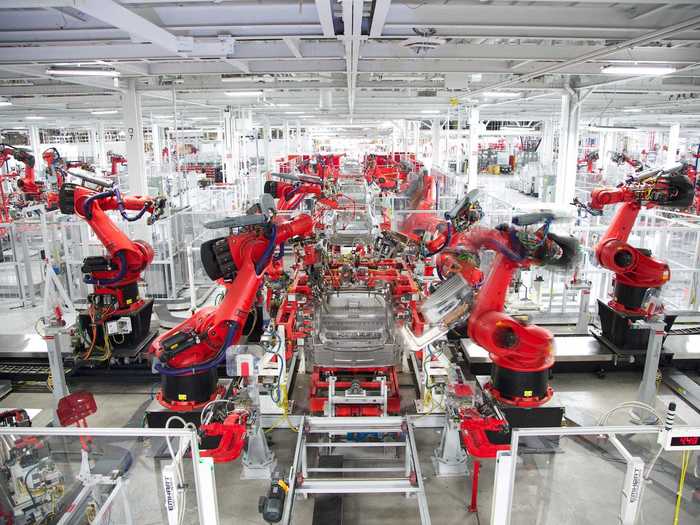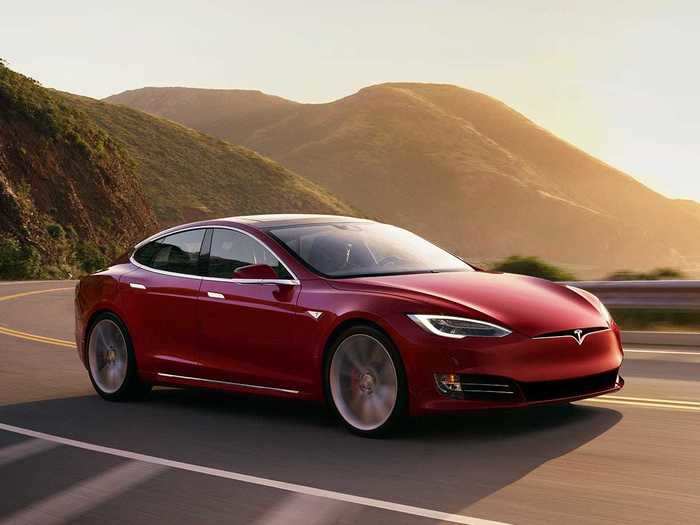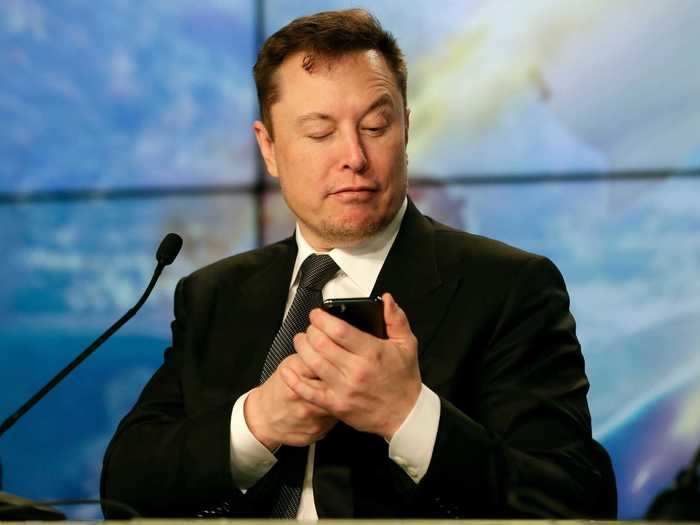The Tesla Model 3.Hollis Johnson/Business Insider
- When we recover from the COVID-19 pandemic, some of us may take the plunge on car ownership.
- It's going to be easy to buy or lease a gas-powered vehicles, but the time couldn't be better for checking out an electric car.
- To that end, Tesla should be high on your shopping list.
- But the brand comes with some pros and cons. Here's a rundown.
In the car business, a debate has broken out. As the US emerges from the coronavirus lockdowns, there's a chance that consumers will avoid public transit, favoring automobiles instead.
But with gas prices lower than they have been in years, the question is, "Will they go for traditional vehicles, or take the plunge on electric cars?"
No one could be sure, but the early handicapping favors the gas-burners; there are more of them waiting around to get sold and the manufacturers and dealers are likely to offer plenty of sweet deals.
But! What about the dramatic improvement in air quality experienced by smoggy cities in even EV-friendly states such as California? Do people really want to squander that, having seen what a pre-car LA, for example, is like? (It's sublime, by all accounts, and that isn't taking the emptied-out freeways into consideration.)
Opportunities like this don't come along very often. If just one or two in ten new car buyers went electric, it would very much move the needle, almost overnight.
There are plenty of EVs in the market. But invariably, a lot of consumers will gravitate toward Tesla. Understandably, as Tesla makes excellent all-electric cars.
But they aren't without a few drawbacks. Here's a rundown of the pros and cons:
Read the original article on
Business Insider
PRO: Design. Tesla's electric-vehicles are currently the best-looking EVs on the market, with an aesthetic that's both venerable and elegant. You won't get tired of looking at your car.
Tesla Model 3.
Hollis Johnson/Business Insider
PRO: Obviously, your gas-pumping days are history. Teslas don't require petrol, so you can say goodbye to the filling station, forever.
A Toyota Prius hybrid, which runs on both gas and electricity.
Reuters/Mike Blake
PRO: Improved air quality. The coronavirus pandemic shutdowns so greatly reduced traffic in smoggy cities like Los Angeles that residents got their first real look at what a post-fossil-fuels future could be like. And it was pretty stunning.
A view of sunny Los Angeles.
Getty Images/TheCrimsonRibbon
PRO: Performance. The fastest Tesla, a Model S, can outrun Ferraris and Lamborghinis in a 0-60 mph sprint. But even the, ahem, slowest Tesla leaves most gas-electric hybrids in the dust.
Tesla Model 3.
Tesla
PRO: Over-the-air software updates. Tesla routinely upgrades the software in its vehicles. The updates are wirelessly beamed to vehicles, so owners can wake up and literally have an improved car.
The center touchscreen in the Tesla Model 3.
Matthew DeBord/BI
PRO: Innovative technology. Tesla's battery and powertrain systems are impressive from a big-engineering standpoint, but the company even gets the small stuff right. Its smartphone app is just about the only useful one offered by any automaker.
A view of the Tesla mobile app.
Hollis Johnson/Business Insider
PRO: The Supercharger network. Tesla's extensive, multinational fast-charging network makes long road trips possible. It's also an intelligent network, in constant communication with Tesla vehicles so that extended routes can be plotted. It isn't free — it used to be — but it's Tesla's biggest competitive advantage.
A Tesla Model X is seen being recharged at a Supercharger
Tesla
PRO: Batteries. Tesla's battery design was at first considered idiosyncratic — thousands of lithium-ion cells, wired together. But over time, it's proven itself. Tesla also sells home energy storage systems, using the same tech found in its cars.
Attendees take pictures of the new Tesla Energy Powerwall Home Battery during an event at Tesla Motors in Hawthorne, California April 30, 2015. Tesla Motors Inc unveiled Tesla Energy - a suite of batteries for homes, businesses and utilities - a highly-anticipated plan to expand its business beyond electric vehicles.
REUTERS/Patrick T. Fallon
PRO: Autopilot's potential. Unlike other semi-self-driving systems, Autopilot has the potential to operate at all speeds on many different types of roads. At the moment, it's still a work in process and nowhere near being fully autonomous. But it could surpass its competition, if the company's ambitions for Autopilot are realized.
Tesla Model S.
Tesla
PRO: Elon Musk. He's the Henry Ford of the EV era. A visionary technologist who has taken Tesla from being a tiny, obscure, struggling startup to a company that's worth more than GM, Ford, and FCA combined.
Elon Musk.
Mike Blake/Reuters
CON: Price. Teslas aren't crazy expensive, but the cheapest Model 3 is still about twice as costly as the least expensive gas-powered sedan you can now buy.
Tesla Model 3.
Tesla
CON: Charging times. There's no way around it. Teslas have big batteries, and even with fast-charging, a "refill" can consume an hour. You can run a gas vehicle to empty and restore it to 400 miles of range with a five-minute fill-up.
Matthew DeBord/BI
CON: Lack of dealerships. Tesla operates stores and can sell direct to consumers in some US states. But the lack of traditional dealerships make the purchase or leasing process more awkward the traditional process.
A Tesla store.
Smith Collection/Gado/Getty Images
CON: Ludicrous Mode. Ludicrous Mode, which takes advantage of powerful batteries and dual electric motors to deliver staggering acceleration, sounds great, and is great — the first few times you do it. But it's almost too much for Tesla's sedans and SUVs.
CON: Autopilot's attention demands. At the moment, Autopilot can't be used in fully handsfree mode (don't do what I'm doing in the photo). So the system pesters you constantly to place you hands on the steering wheel — a good thing, but it's almost easier to just drive the car yourself.
Benjamin Zhang/Business Insider
CON: Home charging. Tesla will sell you a 240-volt, Level 2 home charger for about $500, but you have to arrange for installation. I think Tesla ownership is less fun without this option. But of course nobody has to have their own gas station in the garage.
A Tesla home charger.
Daniel McMahon
CON: Lack of inventory. Tesla has but one factory in the US, and it tends to sell cars as fast as it makes them. So buyers don't have a lot of pre-built inventory to choose from, if they want a car in a hurry. Current delivery times for the Model 3, for instance, are four-to-six weeks.
The Tesla factory.
Tesla
CON: Not an ideal road-trip vehicle. I've taken two long-ish road trips in Teslas and come up against charging waits both times. My kids, as a result, have banned me from ever using a Tesla for this purpose again.
Matthew DeBord/BI
CON: The federal tax credit has expired for Tesla. The $7,500 federal tax credit was a big incentive to go Tesla. But it has phased out, now that the company has sold more than 200,000 vehicles in the US.
Tesla Model S.
Tesla
CON: Elon Musk. Unpredictable, controversial, outspoken — Musk is the opposite of the careful, diplomatic auto executive. You have to take the good with the not-so-good, when it comes to Tesla's CEO.
Elon Musk.
AP Photo

